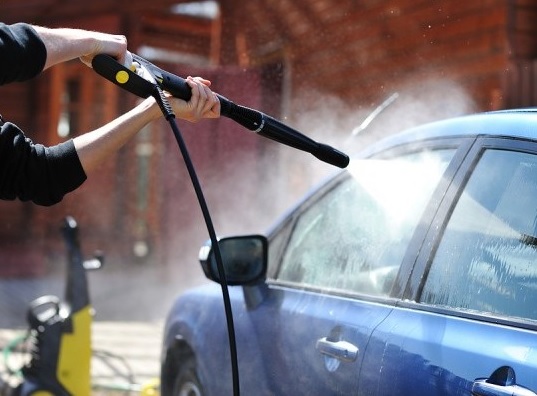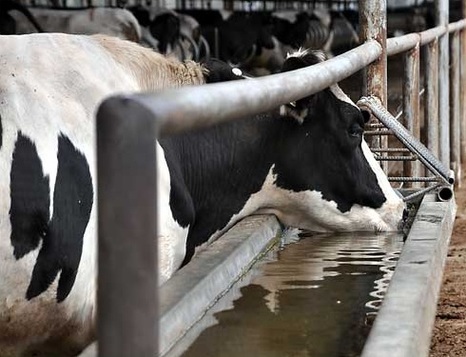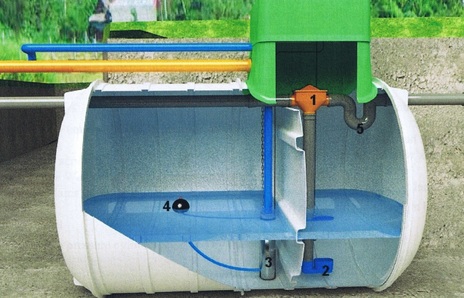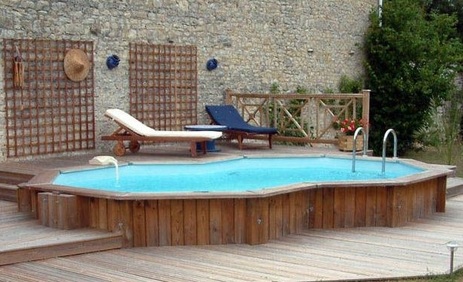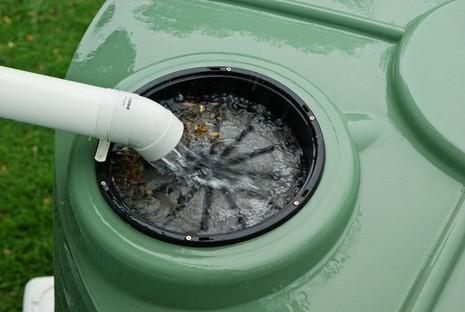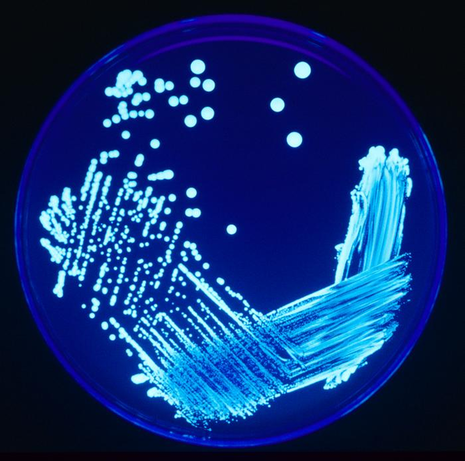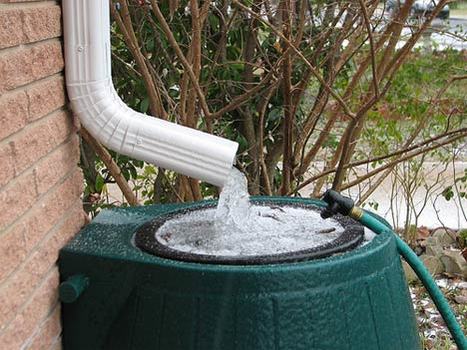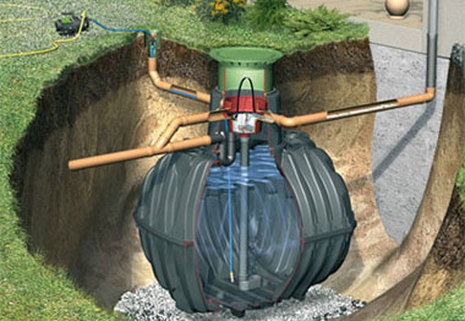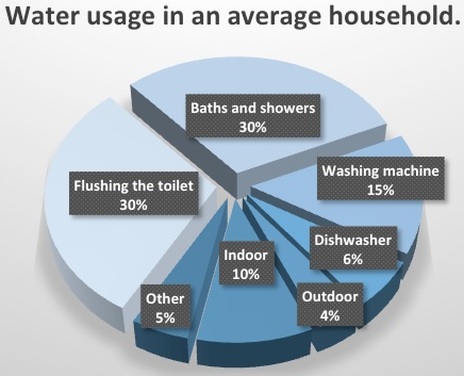RAIN WATER HARVESTING
Reduce CostsRainwater harvesting is the accumulation and collection of rainwater for reuse on-site, rather than allowing it to run off and enter the water table. Uses include water for gardens, golf courses, livestock, irrigation, aquaponics and for domestic use.
Potable or Non-Potable? The supply of non-potable water for domestic uses such as flushing toilets, watering gardens and washing clothes using a washing machine, only requires basic particulate filters and a collection/storage/delivery solution to prevent clogs. Non-potable systems do not cover water supplies for drinking, food preparation or personal hygiene due to the likely chance of pathogenic material having contaminated the supply. Potable RHS have several key differences, first is the inclusion of extra filters in the system to remove particulate matter such as suspended solids and other floating debris. After the water has been polished, its pumped through a germicidal UV lamp or is treated with ozone, sterilising the supply ready for use. If the property is charged by volume of water used (is metered) and you are a heavy user of water, a RHS may be to your advantage. The amount of rainwater that can be collected is dependent on the weather, so any financial savings will be higher in commercial/industrial buildings due to larger roof areas and a greater demand for non-potable water than private homes. This means that you can reduce your mains water reliance and costs, but does not reduce your overall water consumption. |
Water FiltrationFiltering Your Water
Rain water must be filtered and treated to ensure its potable. 1 - Filter: The inline filter prevents heavy particulate matter from entering the system and flushes it back out with excess rainwater.
2 - Calmed Inlet: Prevents turbulent rainwater from stirring up sediment sitting at the bottom of the tank. 3 - Submersible Pump: The pump takes water from the tank, pumping it to the service its connected too. 4 - Floating Suction Fitting: Used to draw clean water from the tank. 5 - Overflow Siphon: Excess rainwater is removed by the overflow syphon. UVC Water Treatment
UVC treatment is incredibly effective in killing pathogenic and spoilage micro-organisms. UV lamps also prevent bio-films from building up within the system, leading to reduced flows/pressure and potential bouts of sickness. The turbidity (cloudiness) of the water will prevent the UV from killing micro-organisms by effectively blocking out light, preventing it from treating water towards the outer areas of the storage container. UV light however has little to no effect on chemicals such as chlorine, and can be used in conjunction together. Ozone Water Treatment
Ozone acts far more powerfully then most chemical disinfectants as micro-organisms can not build up an ozone tolerance. Like the UVC treatments, ozone generators can reduce the cost of chemical sanitation and reduce the endangerment to the environment. What happens when there is no rain?
There is a minimal water level which the tank will fall to before a float switch will activate, this lets the system open a valve to the (optional) mains connection to keep the tank topped up with potable water until it rains again. Most house holds have about a week of water at normal usage. You and Legionella Pneumophila
Legionnaires’ disease is a potentially fatal form of pneumonia which everyone can be susceptible to it's infection. The bacterium Legionella pneumophila are common in natural water sources such as rivers, lakes and reservoirs, but usually in low numbers. They may also be found in purpose-built water systems such as cooling towers, evaporative condensers, hot and cold water systems and spa pools. If conditions are favourable, the bacteria may grow increasing the risks of Legionnaires’ disease. It is therefore important to introduce controls for the risks by introducing appropriate measures. Certain conditions increase the risk from legionella if:
|
Storage Once HarvestedAbove or Below Ground?
The tank needs to be located in a place that will moderate the water temperature, helping to reduce bacterial growth in summer and frost damage in winter. The tank can be the most expensive part of the rainwater harvesting system so should be chosen with care regarding the capacity and location. Rainwater harvesting tanks can easily filter and store clean water depending on your household or business needs. Tanks are sized to around 5% of the annual rainwater supply of the area, this allows you to estimate the required size of storage needed for your purposes. Gutters should be cleared regularly, bird and animal faeces and leaf litter on roofs or guttering can pose a health risk if washed into the RWH system. Your storage will need to be shielded from direct sunlight, avoiding any overheating and algae growth. Underground tanks solve these issues but require additional child proofing of the system. We recommend that you should:
|
Benefits of Water HarvestingThe benefits of harvesting rainwater
|
|
Holloway Agri-Drain Ltd
47 Winchcombe Road Sedgeberrow Worcestershire WR11 7UZ Office: 01386 881923 Mobile: 07779247552 Email: [email protected]
|
Abberley, Alvechurch, Bewdley, Birtsmorton, Bishampton, Bishops, Frome, Boraston, Bournheath, Bransford, Bredon, Bringsty, Broadway, Bromsgrove, Chaddesley Corbett, Charlton, Church Lench, Clent, Cleobury Mortimer, Clows Top, Colwall, Cookley, Defford, Droitwich, Droitwich Spa, Elcocks Brook, Evesham, Fladbury, Flyford Flavell, Great Malvern, Great Witley, Hagley, Hanley Castle, Hartlebury, Harvington, Hollywood, Honeybourne, Kemerton, Kempsey, Kidderminster, Kinlet, Knightwick,
Little Malvern, Malvern, Malvern Link, Malvern Wells, Martley, North Littleton, Offenham, Ombersley, Pensax, Pershore, Pinvin, Powick, Redditch, Sambourne, Severn Stoke, Shatterford, Shrawley, Smite, Stoke Bliss, Stoke Heath, Stoke Prior, Stottesdon, Stourbridge, Stourport On Severn, Tenbury Wells, Tewkesbury, Upton Upon Severn, Wadborough, Welland, Whitbourne, Wichenford, Willersley Hill, Winchenford, Worcester, Wyre Piddle, Wythall.
Little Malvern, Malvern, Malvern Link, Malvern Wells, Martley, North Littleton, Offenham, Ombersley, Pensax, Pershore, Pinvin, Powick, Redditch, Sambourne, Severn Stoke, Shatterford, Shrawley, Smite, Stoke Bliss, Stoke Heath, Stoke Prior, Stottesdon, Stourbridge, Stourport On Severn, Tenbury Wells, Tewkesbury, Upton Upon Severn, Wadborough, Welland, Whitbourne, Wichenford, Willersley Hill, Winchenford, Worcester, Wyre Piddle, Wythall.

